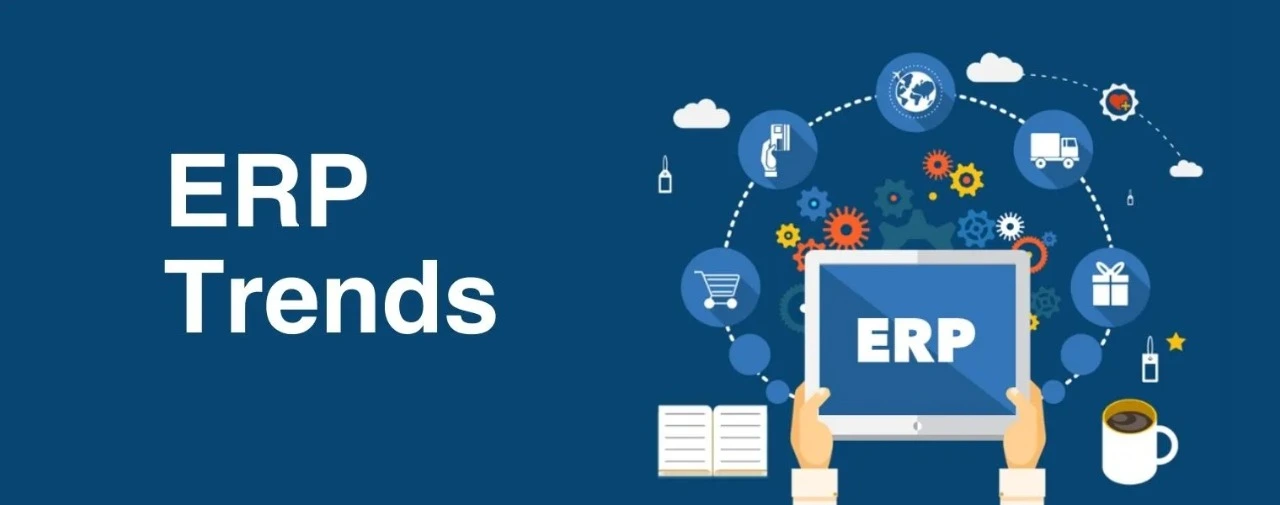
From back-end activities like accounting, HR, procurement, and manufacturing to front-office services like sales force automation, marketing automation, and ecommerce, enterprise resource planning solutions have developed and expanded their scope to cover most company functions. Businesses use ERP Software to not only save money by removing redundant procedures and automating routine operations, but also to give employees access to crucial information so they can make better decisions faster. ERP is becoming more integrated with other technologies, such as internet of things (IoT) devices and social media, in order to automate even more processes and provide better visibility and customer service. In an unpredictable market, with pandemic chaos still wreaking havoc, it's essential to batten down the hatches and adopt the latest ERP trends for 2022 to keep your company competitive.
Many firms have traditionally relied on on-premises ERP solutions and have been hesitant to trust essential business applications to the cloud, but this is increasingly changing. Businesses are turning to cloud ERP for a variety of reasons, including ease of implementation, lower costs, elasticity (the ability to use only the resources needed at any given time), new functionality, reduced reliance on internal IT resources, and the ability to easily add users and functions to accommodate business growth. Cloud ERP software, also known as SaaS ERP software, is not a new concept and has been around for a while, but with the pandemic breakout, when remote working became the new normal, cloud deployment became the preferred option. The quick implementation, low deployment cost, and enhanced collaboration features of cloud ERP software are driving greater demand. The systems can also provide users with real-time information and allow for remote working while maintaining high data security. In 2022, there will be a quantum surge in cloud adoption, with improved security protocols and compliance to deal with new circumstances.
Many organizations have attempted to implement a single ERP system for both the headquarters and all regional offices and subsidiaries in the past. In fact, however, that strategy was frequently costly and difficult to adopt; subsidiaries frequently had unique needs, didn't require the entire capability of the corporate system, and battled with the one-size-fits-all approach. As a result, two-tier ERP is expected to be one of the most popular ERP trends in 2021. Two-tier ERP is a method that allows companies to employ existing ERP systems at the corporate level (tier 1) while subsidiaries and divisions use a different ERP solution (tier 2), which is frequently cloud-based. Larger firms may continue to utilize their core ERP system for financials and other key activities, while smaller business divisions migrate to specialized solutions. The efficiency of this technique is dependent in part on the capacity to communicate data between the tiers—some tier 2 cloud solutions feature built-in integration capabilities with corporate ERP systems. This strategy has a variety of advantages. It's usually less expensive than converting the corporate ERP system to work for the entire company. A tier 2 solution could be easier to adopt and give subsidiaries more flexibility in responding to changing business conditions. Furthermore, the two-tiered model may be better suited for high-growth firms.
Digital transformation is the process of integrating digital technology into all corporate tasks in order to improve daily operations. This strategy can increase revenue and competitiveness while also enhancing employee productivity and customer service and communication. Because ERP software affects almost every aspect of a business, it's a sensible location to start facilitating this shift.
Modern ERP is an important component of a company's digital transformation, it is just one part of a larger technological investment. Businesses are merging their business apps with other new technologies, such as IoT, to improve essential processes. Retailers, for example, employ warehouse management systems to collect data from mobile scanners and smart conveyers to track the flow of things throughout the warehouse. By automating order fulfilment, updating inventory levels, and recording payments, several organizations mix ERP with ecommerce to optimize online order operations. In the coming year, there will be a stronger link between social media and ERP. Companies can gain a better knowledge of their audience and improve their digital marketing strategies and customer experience by seeing all of their customers' and prospects' social media activity in one place. Companies may obtain additional insights into the entire sales process and experiment with new ways to target and sell by combining data from social media interactions with sales order history and communication with consumers.
Historically, ERP platforms with complicated programming languages were difficult to adapt to each company's unique requirements. However, firms can now take advantage of cloud ERP platforms that are designed to be easy to configure, or "low-code" platforms, as analysts refer to them. In addition, a rising number of ERP solutions are being developed to meet the needs of certain industries. Companies require ERP systems that can suit their needs, such as fully personalized dashboards, as they focus on providing more customized, relevant experiences to customers. One new trend is the rise in popularity of AI-based assistive and conversational user interfaces such as chatbots, which can read user voice or text input and respond to enquiries utilizing customer and order data stored in the ERP.
Built-in artificial intelligence and machine learning capabilities in ERP systems work in the background to fulfil rising demands for personalized and improve a variety of business operations. While some ERP systems could previously be enhanced with AI, more companies are now offering ERP software that contains these functionalities out of the box.
If you're planning to adopt your first ERP system or upgrade an existing one, DoFort may be able to save you time by removing the need for a lengthy evaluation, selection, and implementation procedure. Our team of professionals will increase the likelihood of your efforts being successful.
Welcome to DoFort !